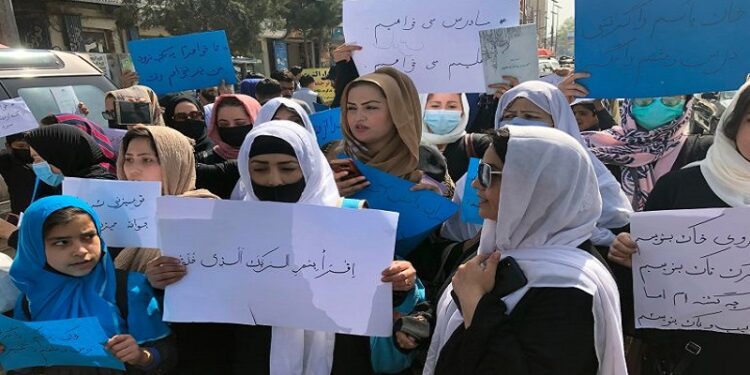Gender inequality has remained stagnant for a decade, according to research by the United Nations, as cultural biases and pressures continue to hinder women’s empowerment and leave the world unlikely to meet the UN’s goal of gender parity by 2030.
Among both men and women, “biased gender social norms are prevalent worldwide: almost 90 percent of people have at least one bias” among the seven analysed by the UN Development Programme (UNDP) in a report released on Monday.
Despite a surge in women’s rights groups and social movements like Time’s Up and MeToo in the United States, biased social norms and a broader human-development crisis heightened by COVID-19, when many women lost their income, have stalled progress on inequality.
In the report, the UNDP tracked the issue through its Gender Social Norms Index, which uses data from the international research programme World Values Survey (WVS).
The survey draws from data sets spanning 2010-14 and 2017-22 using data from 80 countries and territories, covering 85 percent of the global population.
Biases
The analysis showed that almost nine out of 10 men and women hold fundamental biases against women and that the share of people with at least one bias has barely changed over the decade.
In 38 of the surveyed countries, the share of people with at least one bias decreased to just 84.6 percent from 86.9 percent.
For example, 69 percent of the respondents still believe that men make better political leaders than women, and only 27 percent believe that it is essential for democracy that women have the same rights as men.
Nearly half – 46 percent – believe that men have more right to a job, and 43 percent that men make better business leaders.
A quarter of them also think it justifiable for a man to beat his wife, and 28 percent believe that university is more important for men.
Though education has always been hailed as key for improving economic outcomes for women, the survey revealed the broken link between the education gap and income, with the average income gap at 39 percent even in the 57 countries where adult women are more educated than men.
The degree of improvement over time has been “disappointing”, said Heriberto Tapia, research and strategic partnership adviser at UNDP and co-author of the report.
Prejudices create “hurdles” for women and are “manifested in a dismantling of women’s rights in many parts of the world”, the report said.
“Without tackling biased gender social norms, we will not achieve gender equality or the Sustainable Development Goals,” it added.
Source: Al Jazeera






 WhatsApp us
WhatsApp us 

